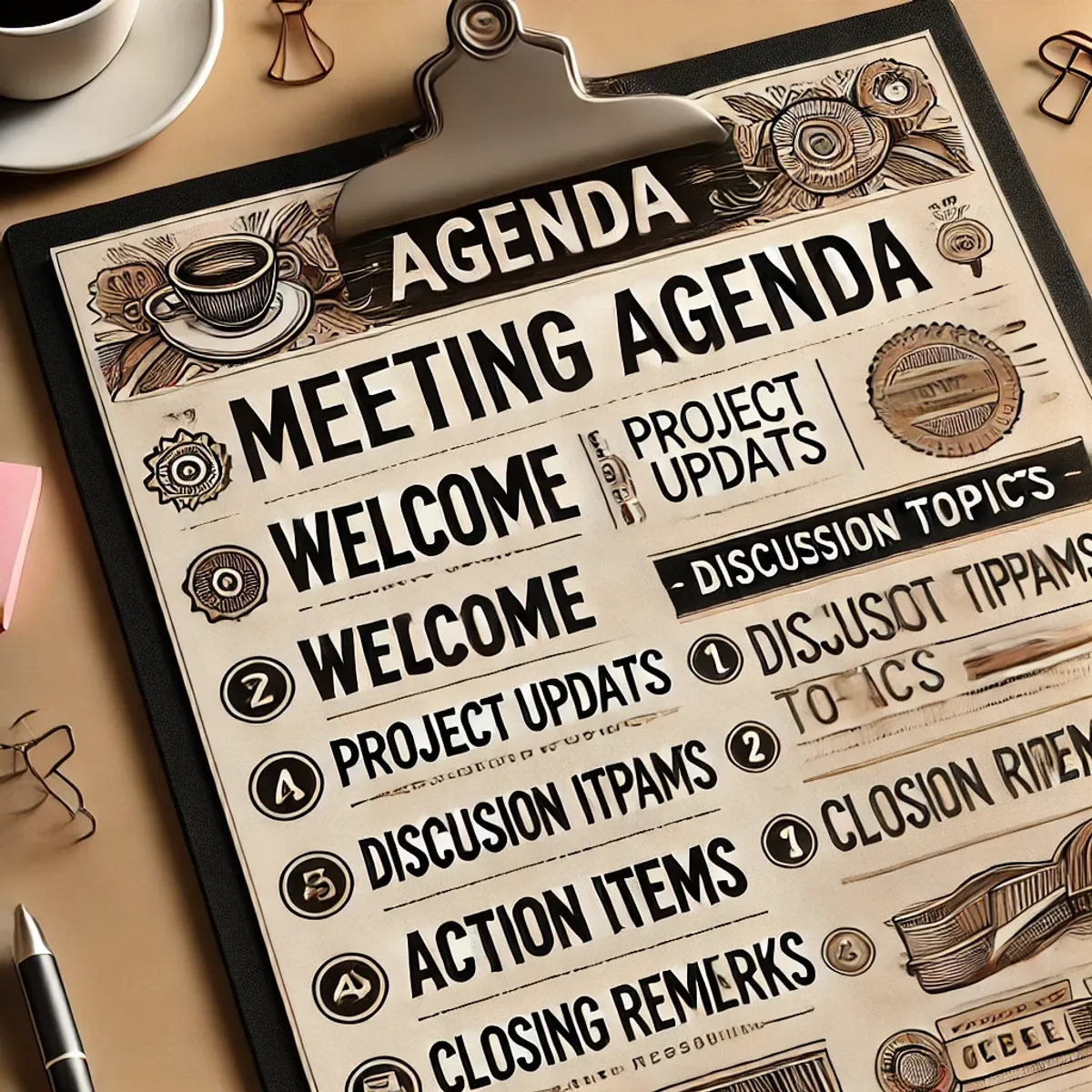You can find here my recipe on how to properly set up an agenda for an effective meeting. The questions you'll need to answer beforehand will challenge you at the point you may recognize you don't need the meeting at all.

Have you ever found yourself stuck in a meeting where you didn’t know:
- What your contribution should be
- What was the objective
- What they were talking about
Or even worse, if the meeting ended up with no results… This is the post you were looking for! Your entire productivity and success depend on fixing issues like this, too. How? Here you find some small (but effective) tricks.
Every meeting should have an agenda (this sentence can finish here and it would still be a piece of precious advice) with 3 points: context, objective and notes.
CONTEXT 🗒️
You should describe in a few words why this meeting has been set. What’s the project or the initiative, what were the decisions already made and what is the main topic. In this way, all the attendants can prepare in advance and more important know if they are relevant to the discussion.
Let’s make some good examples:
- BigCorp would like to launch a new insurance product within June. The end user contract has already been defined.
- We are adapting our systems and processes according to the new law: we have already fixed products 1 and 2, and we are now focused on product 3.
And some bad examples:
- BigCorp is one of the greatest companies in Europe
- Let’s talk about evolutions on our website
OBJECTIVE 🎯
This section should complete the sentence “When the meeting ends, it would have been a success if…”. Objectives (they may be more than one) should be simple and easily measurable.
Good objectives:
- Solve all the open points of the H column of the attached Excel
- Approve or deny the budget given the business case we are going to present
- Finalize the algorithm deciding on proposal A or B
Not-so-good objectives:
- Talk about the new product
- Understand how to handle this process
- Review the excel
When you are not able to set clear objectives it may be a sign it’s still not time to call a meeting, you may need more time working offline gathering doubts and things to discuss.
NOTES 📓
This is an optional section where you may signal attention points, from logistics to temporal ones.
Other things to consider
- if you need to invite creative people like developers, it is better not to set them in the middle of the day or afternoon interrupting a block of work
- if you spend most of the meeting time sharing a screen it’s a good signal the meeting was well prepared and you are going straight to the objectives
- except for demos or brainstormings, the more people you add to a meeting the higher the risk of inefficiency or excluding part of the audience
- a recap mail at the end of the meeting is always welcomed, it is easier if objectives were well written
- you should not fear you may be seen as disrespectful in not accepting a meeting until context and objective are not clarified by the organizer
You need to practice.
So, what are you waiting for? Take a second look at the meetings you have already planned or go back to this post next time you need to set up one!